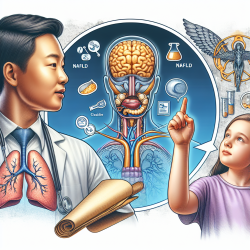Introduction
In the realm of speech-language pathology, creating optimal outcomes for children is a primary focus. One innovative approach that has shown promise in adult populations is the peer-led health promotion program, as exemplified by the Hans Kai trial. This trial evaluates the efficacy of peer-led health promotion programs, which can offer valuable insights for practitioners aiming to enhance children's health and well-being.
The Hans Kai Trial: A Brief Overview
The Hans Kai trial is a mixed methods randomized controlled trial designed to evaluate a peer-led health promotion program. This program is unique in its holistic approach, addressing multiple determinants of health. Participants engage in group informational sessions led by healthcare professionals, followed by peer-led group meetings to reinforce newly learned health competencies. The trial aims to assess the program's effectiveness in promoting health and well-being and to understand participants' experiences.
Key Findings and Implications for Child Practitioners
While the Hans Kai trial focuses on adults, its findings have potential applications for children's health programs. Here are some insights and implications for practitioners:
- Holistic Health Approach: The Hans Kai program's holistic model addresses multiple health determinants. Practitioners can adopt a similar approach by considering various factors affecting children's health, such as nutrition, physical activity, and mental well-being.
- Peer Support: The trial highlights the importance of peer support in health promotion. For children, fostering peer interactions and support can enhance motivation and engagement in health-related activities.
- Empowerment and Self-Efficacy: The program empowers participants to take control of their health. Practitioners can encourage children to set health goals and develop self-efficacy by involving them in decision-making processes related to their health.
- Adaptability: The Hans Kai program's adaptability to participant feedback is crucial. Child health programs can benefit from being flexible and responsive to the needs and preferences of young participants.
Encouraging Further Research
The Hans Kai trial serves as a valuable model for practitioners interested in exploring peer-led health promotion programs for children. By conducting further research and trials, practitioners can gather data-driven insights into the effectiveness of such programs in improving children's health outcomes.
Conclusion
The Hans Kai trial offers a compelling case for the potential benefits of peer-led health promotion programs. By adopting a holistic, peer-supported, and adaptable approach, practitioners can create meaningful and lasting impacts on children's health and well-being. To delve deeper into the original research, please follow this link: The Hans Kai trial: study protocol of a mixed methods randomized controlled trial evaluating a peer-led health promotion program for adults with or without noncommunicable diseases.










